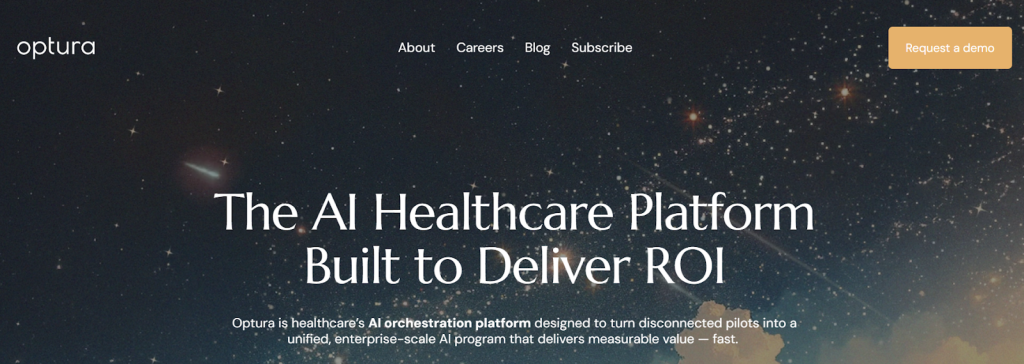Optura.AI Raises $6.5M to Bring AI-Driven Financial Planning to Enterprise Teams
July 7, 2025
byFenoms Start-Ups

Optura.AI, a San Francisco-based FinTech startup, has closed a $6.5 million seed round, led by Susa Ventures and Matrix Partners. Founded by veteran product leaders Andy Fanning and Michael Hollis, the company is on a mission to revolutionize financial planning workflows with AI-powered forecasting and scenario modeling for mid-market and enterprise businesses.
What Optura.AI Offers
At its core, Optura combines financial rigor with modern usability:
- AI-powered forecasting engine using historical operating data to generate rolling forecasts
- Scenario modeling tools allowing FP&A teams to test “What if?” cases instantly - e.g., adding a new product, hiring plans, or market expansion
- Collaborative dashboards, enabling cross-functional visibility and commentary
- Integrations with existing finance stacks (NetSuite, QuickBooks, Excel) for data sync and minimal disruption
They’re not building a generic BI platform - they’re delivering a usable, AI-enhanced FP&A co-pilot that anticipates targets, surfaces risks, and helps teams plan with confidence.
Founders’ Vision for the Future
Fanning and Hollis see the long game clearly. They’re building for a future where:
- Strategic decision support is built into every department’s workflow
- Finance tools are no longer back-office, but embedded in every roadmap discussion
- Companies of all sizes can simulate the impact of a new product line, international hiring, or burn trade-off - instantly
And eventually, their platform may offer a marketplace of pre-modeled strategies, enabling teams to adopt best-practice playbooks just like code libraries.
Why This Matters Now
There’s growing urgency in financial planning across every vertical:
- The FP&A software market was valued at $4.2 billion in 2023, and is projected to reach $13.2 billion by 2030, growing at a CAGR of 11.2%
- 69% of CFOs have reported increased pressure to reduce budget cycles and improve scenario accuracy under macroeconomic uncertainty
- 47% of enterprises say they still rely on manual spreadsheets as their primary planning tool, despite rising data complexity
With volatility now the norm, the CFO’s role is increasingly about agility over accuracy - making room for tools like Optura that shorten the feedback loop from data to decision.
Where Optura Changes the Game
What makes Optura compelling is not just its tech stack - but the way it reshapes the expectations of financial teams. Many legacy systems produce numbers; very few systems contextualize those numbers into operating decisions.
What founders should take from this is that “data visibility” is no longer a differentiator. The new value layer is decision compression. How fast can your product get someone from question to confident action? This is where Optura quietly wins. Their forecasts don’t require second guesses. Their scenario tools don’t require a data analyst. Their commentary features don’t require a Slack thread. That’s how software becomes embedded - not just adopted.
The strategic insight here is subtle but critical: tools that generate fewer decisions, faster, create more strategic confidence than platforms that generate dozens of uncertain options. Optura reframes financial software from a number-crunching engine into a velocity tool for clarity.
Early Adoption and Real Results
Despite being early-stage, Optura is already working with fast-growing teams across SaaS, e-commerce, and healthcare. Key impact metrics include:
- Up to 40% reduction in forecasting time per cycle
- Improved alignment across departments via shared financial assumptions
- Faster capital allocation based on modeled burn scenarios and ROI sensitivity
One customer reported replacing a five-tab Excel model with a 20-minute simulation that saved their finance team six hours per week. For startups operating in lean cycles, time is more than money - it’s strategic edge.
Post-Funding Roadmap
With this seed round, Optura is laser-focused on several priorities:
- Enhancing AI models, enabling scenario generation using industry benchmarks
- Expanding integration partners, including Workday, Sage Intacct, and growing ERP ecosystems
- Investing in user experience, simplifying the FP&A workflow for non-analyst users
- Launching a template library, offering pre-built models for SaaS, retail, professional services
- Building community and content, including workshops and webinars to elevate planning professionalism
The aim is to scale adoption from single teams to organization-wide financial planning platforms.
Industry Outlook: FP&A in the Age of AI
Financial planning is undergoing a transformation:
- By 2027, over 75% of enterprises will adopt AI-powered tools in financial planning
- AI-based modeling delivers 50% greater accuracy in forecasting over time compared to static models
- Tools that enable real-time “What if?” analysis are 30% more likely to be used by C-suite, not just finance teams
It’s no longer just about automation - it’s about how fast you can simulate impact before making decisions. In this world, tools like Optura aren’t just FP&A utilities; they become the UI for enterprise thinking.
Long-Term Vision
Founders Fanning and Hollis envision Optura evolving beyond FP&A:
- Embedded planning assistants, proactive in highlighting upcoming cash crunches
- Predictive spend insights, alerting on overspend before budgets break
- Executive dashboards, where the CEO sees modeled outcomes based on linked strategic plans
They imagine a marketplace where financial leaders can build custom planning apps atop the AI engine - turning FP&A into a modular strategy platform.









